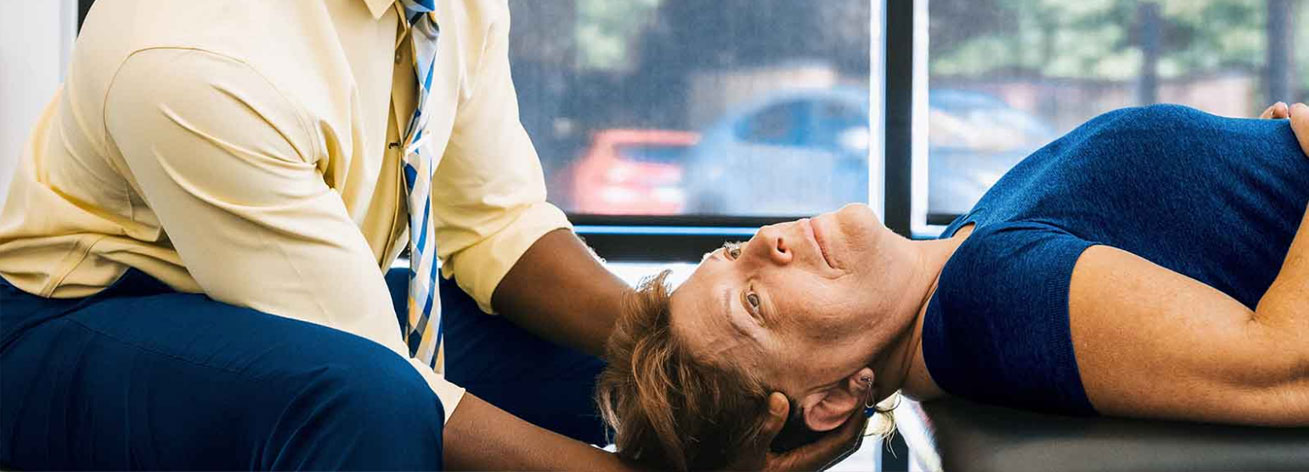Vestibular Rehabilitation
Vestibular rehabilitation services focus on the assessment and treatment of individuals with vestibular disorders, which affect the inner ear and vestibular system responsible for balance and spatial orientation. Here’s an overview of what these services typically entail:

- Comprehensive Assessment: The process begins with a thorough assessment by a vestibular physiotherapist or healthcare professional specializing in vestibular rehabilitation. This assessment includes a detailed history of symptoms, physical examination, and specialized tests to evaluate vestibular function, balance, gaze stability, and other related factors.
- Diagnosis and Treatment Planning: Based on the assessment findings, the vestibular therapist diagnoses the specific vestibular disorder and develops an individualized treatment plan tailored to the individual’s needs and goals. Treatment goals may include improving balance and stability, reducing dizziness and vertigo symptoms, and enhancing functional mobility and quality of life.
- Balance and Gait Training: Vestibular rehabilitation typically includes exercises and activities aimed at improving balance, gait, and coordination. These may include static and dynamic balance exercises, walking and gait training, and activities to challenge postural control and stability.
- Gaze Stabilization Exercises: Gaze stabilization exercises focus on improving the ability to maintain visual focus during head movements, which can be impaired in individuals with vestibular disorders. These exercises may involve head and eye movements coordinated with visual targets to promote adaptation and habituation of the vestibulo-ocular reflex (VOR).
- Canalith Repositioning Maneuvers: For individuals with benign paroxysmal positional vertigo (BPPV), a common vestibular disorder characterized by brief episodes of vertigo triggered by specific head movements, canalith repositioning maneuvers such as the Epley maneuver or Semont maneuver may be performed to reposition displaced inner ear crystals (otoconia) and alleviate symptoms.
- Habituation Exercises: Habituation exercises aim to desensitize the vestibular system to motion and movement-related symptoms such as dizziness and nausea. These exercises involve repeated exposure to provoking movements or stimuli, gradually reducing the intensity and frequency of symptoms over time through habituation and adaptation.
If you’re in pain, you want to get back to living life on your terms.
Call 02 6258 1442 for an Expert Consultation
- Vestibular Adaptation Exercises: Vestibular adaptation exercises promote compensation and adaptation of the vestibular system to reduce symptoms and improve balance and stability. These exercises involve deliberate exposure to controlled vestibular stimuli, such as head movements or visual motion, to facilitate neural plasticity and recalibration of vestibular function.
- Education and Self-Management Strategies: Vestibular rehabilitation includes education on the individual’s vestibular disorder, triggers for symptoms, and strategies for managing symptoms in daily life. This may include advice on lifestyle modifications, fall prevention strategies, and techniques for coping with dizziness and vertigo episodes.
- Progress Monitoring and Follow-up: Throughout the rehabilitation process, progress is monitored closely, and the treatment plan is adjusted as needed based on the individual’s response to therapy. Regular follow-up appointments allow for ongoing assessment, goal setting, and modification of exercises to optimize outcomes and promote long-term vestibular health.
Vestibular rehabilitation services at Florey Physiotherapy Canberra aim to alleviate symptoms, improve functional abilities, and enhance quality of life for individuals with vestibular disorders. By targeting specific impairments and promoting adaptation and compensation of the vestibular system, vestibular rehabilitation helps individuals regain confidence in their balance and mobility and return to their daily activities with greater independence and comfort.
WORKING HOURS
Monday / Wednesday / Thursday
8 am–12:30 pm, 2:30–6 pm
Tuesday / Friday
8 am–12:30 pm, 2–5:30 pm
Saturday
8:30 am–12:30 pm ( appointments only )
Sunday Closed
CONTACT
- Racom House Unit 6/ 37 Kesteven Street Florey ACT 2615
- 02 6258 1442
- physio@floreyphysio.com.au

